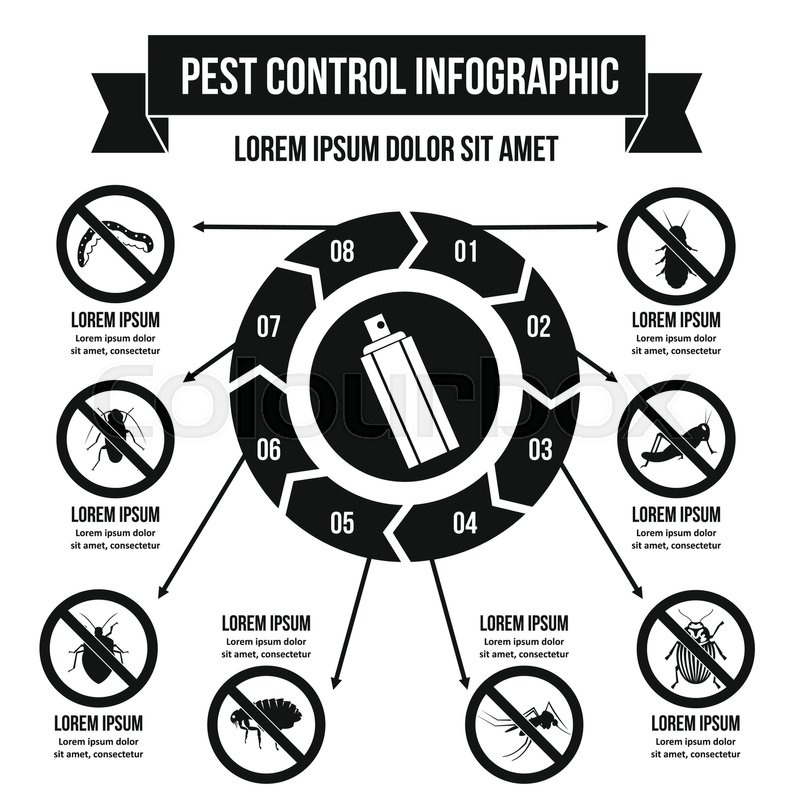The Duty Of Insect Control In Food Safety And Security And Hygiene
The Duty Of Insect Control In Food Safety And Security And Hygiene
Blog Article
Team Writer-Willadsen Bunn
Are you aware of the covert threats that pests position to the safety and hygiene of your food? From rodents to pests, these undesirable visitors can contaminate your components, surfaces, and storage areas.
This short article checks out the critical function of pest control in maintaining the greatest requirements of food safety and hygiene. Discover reliable techniques and prevention actions that will help you protect your organization, clients, and track record.
Do not allow insects jeopardize the top quality of your food.
The Impact of Parasites on Food Security and Hygiene
In your cooking area, pests can have a considerable impact on food safety and hygiene. These undesirable guests, such as rodents, bugs, and roaches, can contaminate your food, surface areas, and tools with dangerous microorganisms, infections, and bloodsuckers. Recommended Internet page can conveniently access your pantry, cupboards, and even your fridge, leaving behind droppings, urine, and hair.
Not only can they ruin your food by chewing via packaging, yet they can also spread illness like Salmonella, E.coli, and Listeria. Picture preparing a dish for your family, uninformed that the components you're using are already polluted.
It's important to take instant action to avoid and regulate bugs in your kitchen. Routine cleaning, correct food storage, and professional bug control measures are necessary to make certain food safety and security and maintain a hygienic atmosphere in your kitchen.
Efficient Pest Control Strategies for the Food Industry
Applying reliable parasite control approaches is vital for maintaining food safety and security and health in the food industry. By implementing these strategies, you can avoid pests from polluting the food and make sure that your products are secure for intake.
One efficient strategy is to regularly examine and check your center for indicators of insect task. This consists of monitoring for droppings, nests, or any type of damages caused by pests.
It's also crucial to seal all entrance points to stop insects from entering the center. Regular cleaning and cleanliness are vital, as parasites are brought in to food residue and spills.
Furthermore, proper waste administration is important to avoid the accumulation of food waste that can bring in bugs.
Keeping Hygiene Requirements With Pest Prevention Actions
To maintain hygiene requirements, you should routinely carry out parasite avoidance procedures. By taking aggressive steps to prevent bugs from entering your food establishment, you can ensure the safety and cleanliness of your facilities. Below are some reliable pest avoidance measures to consider:
- Seal all fractures and crevices: Bugs can go into with also the tiniest openings. Regularly check and seal any gaps in doors, windows, walls, and floorings to maintain insects out.
- Appropriate waste administration: Take care of food waste promptly and safely in sealed containers. simply click the up coming webpage will lessen the attraction of insects and prevent infestations.
- Routine cleaning and sanitizing: Preserving cleanliness in your facility is important. Frequently tidy and sterilize all locations, paying unique interest to areas where parasites might conceal or breed.
- Execute a tracking system: Frequently examine your premises for indications of bug task. Mount bug monitoring gadgets, such as catches or sensors, to determine and deal with any possible issues at an early stage.
Final thought
So remember, when it comes to food security and hygiene, parasite control plays a critical function.
By applying reliable pest control methods and safety nets, we can make sure the highest criteria of sanitation and safety in the food industry.
Do not let insects compromise the high quality of our food; allow's stand together and protect our health and well-being.
